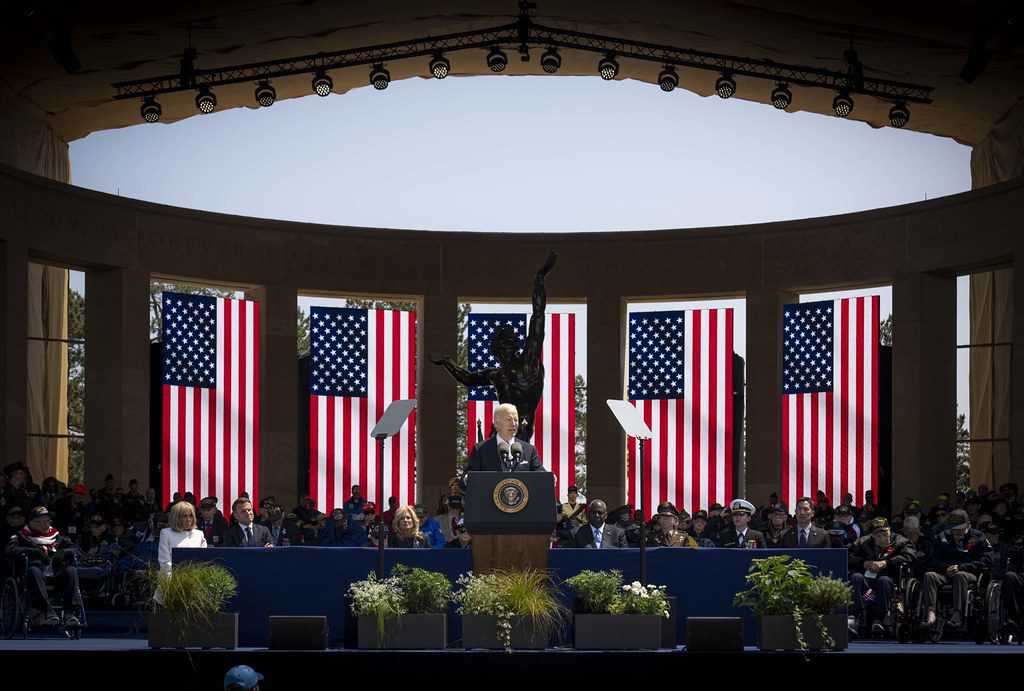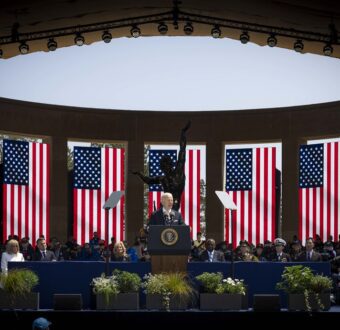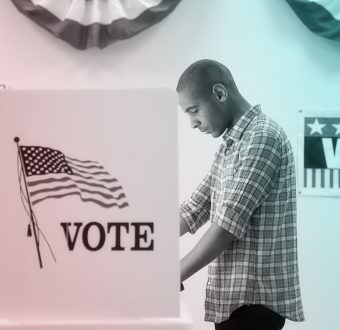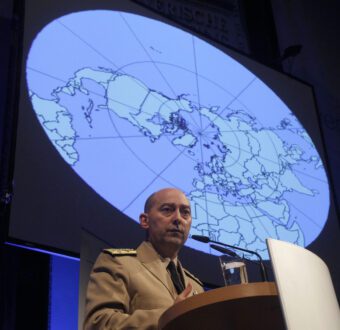Americans Don’t Want a Wartime President

If Biden can avoid the temptation to be a warrior defending allies abroad, he might have a better chance at winning his battles at home.
US President Joe Biden pitches his bid for reelection as a defense of American democracy itself. It’s a shrewd strategy as his opponent displays an awkward affection for autocrats. However, with a speech in France this week commemorating the anniversary of D-Day and “the importance of defending freedom and democracy,” his team might be signaling a strategy of portraying Biden as a bulwark of democracy not just at home, but also across the globe—especially while wars in Ukraine and the Middle East likely grind on through election day. An Institute for Global Affairs survey that my colleagues and I published this week strongly suggests this could be a strategic mistake.
During the State of the Union address in March, Biden warned that US democracy is more “under assault” than it has been at any time since the Civil War. This reality should be rousing enough on its own. But he diluted the message by swiftly tying it to attacks on democracy overseas by referring to Russia’s invasion of Ukraine, turning a powerful political proposition into a less salient one for American voters.
The Biden administration’s rhetoric has upped the ante. In its telling, the war in Ukraine is not simply a regional conflict with very particular historical origins but part of an existential global battle between democracy and autocracy. This ideological framing has flustered some on Biden’s own national security staff, who see Ukraine’s fight as a straightforward defense of its sovereignty and independence rather than a noble struggle against autocracy on behalf of the free world.
When I mentioned that Secretary of State Antony Blinken must know that this framing distorts the essential dynamics of the conflict, one senior White House staffer confided, on the condition of anonymity, that it was coming directly from the Oval Office.
…

Mark is a senior fellow with the Independent America project at the Institute for Global Affairs and host of the podcast, None Of The Above.
More from Mark
This post is part of Independent America, a research project led out by IGA senior fellow Mark Hannah, which seeks to explore how US foreign policy could better be tailored to new global realities and to the preferences of American voters.













NATO at 75: What’s Its Future?